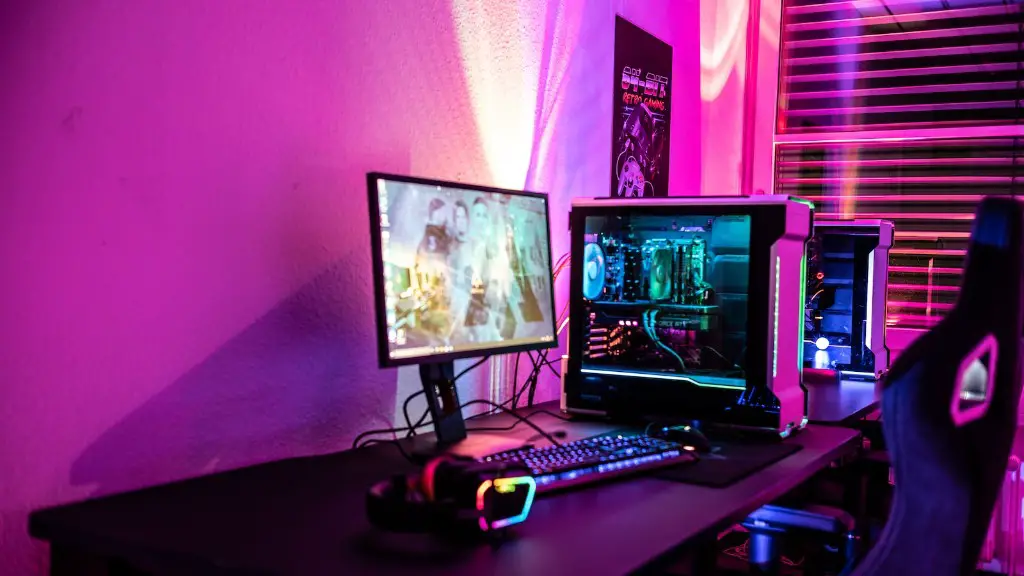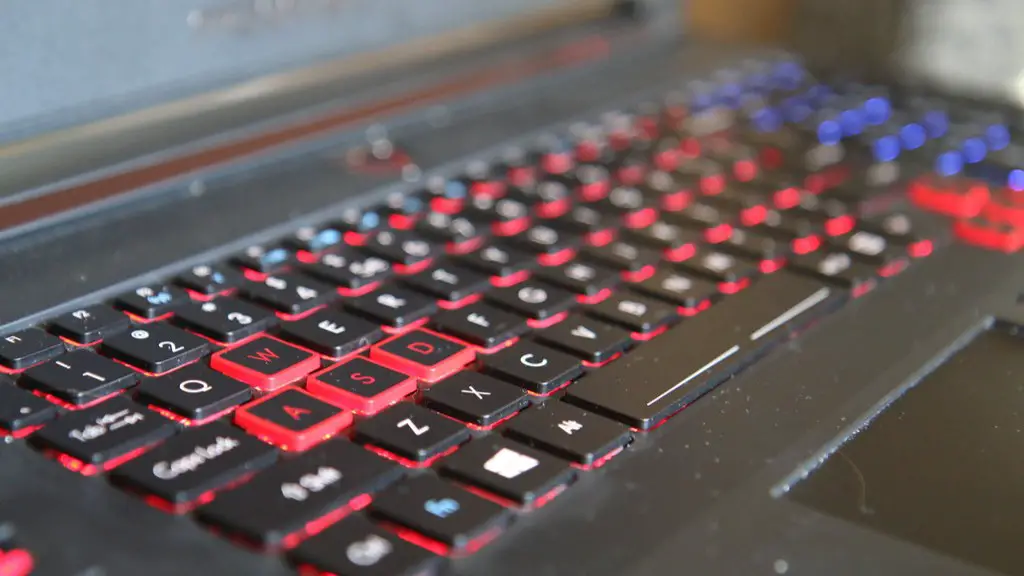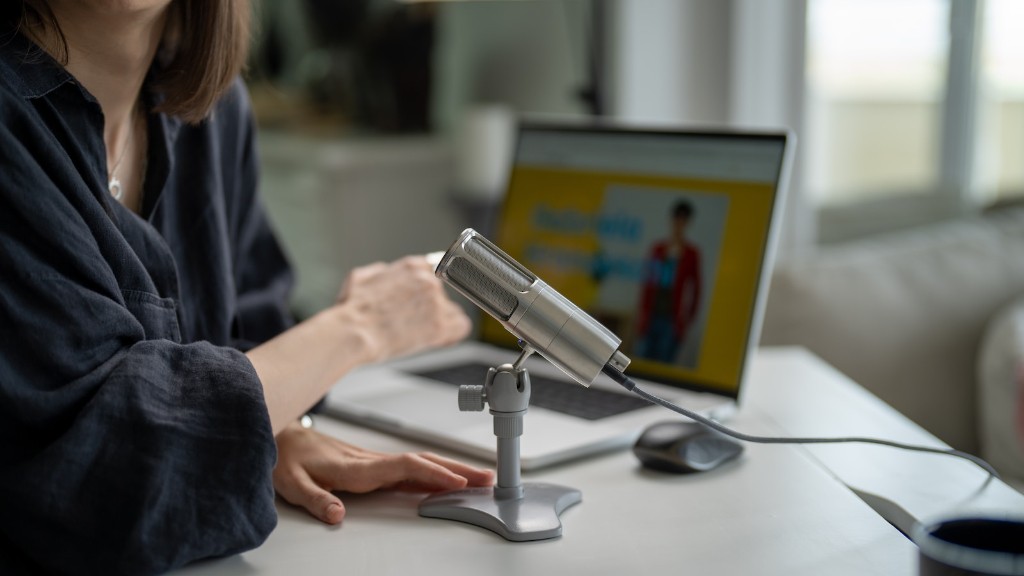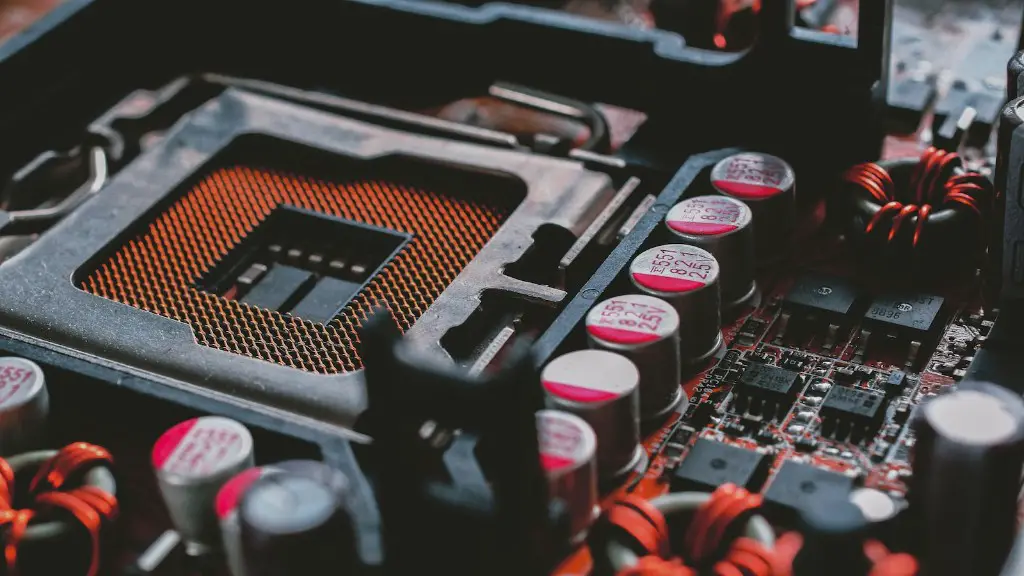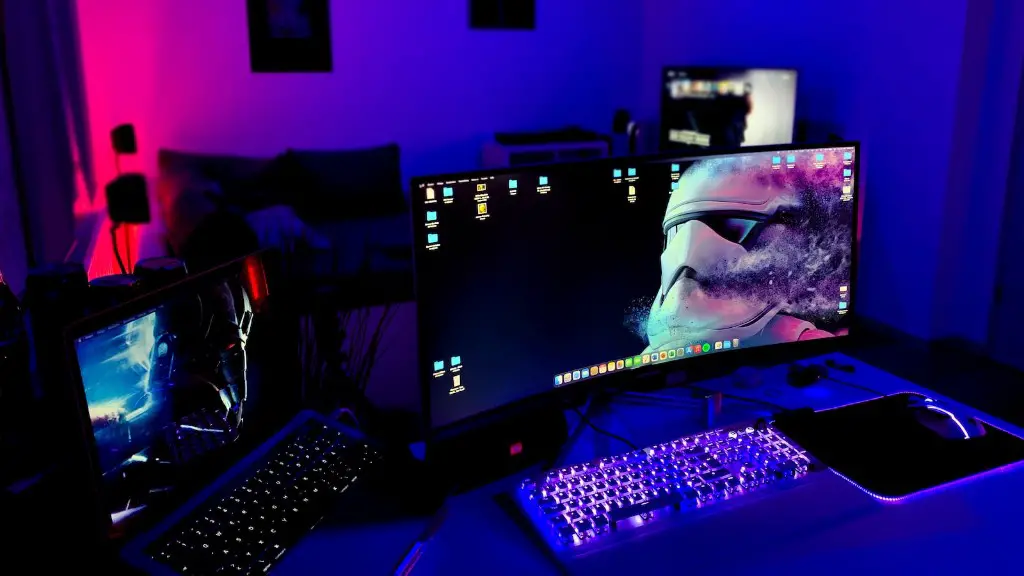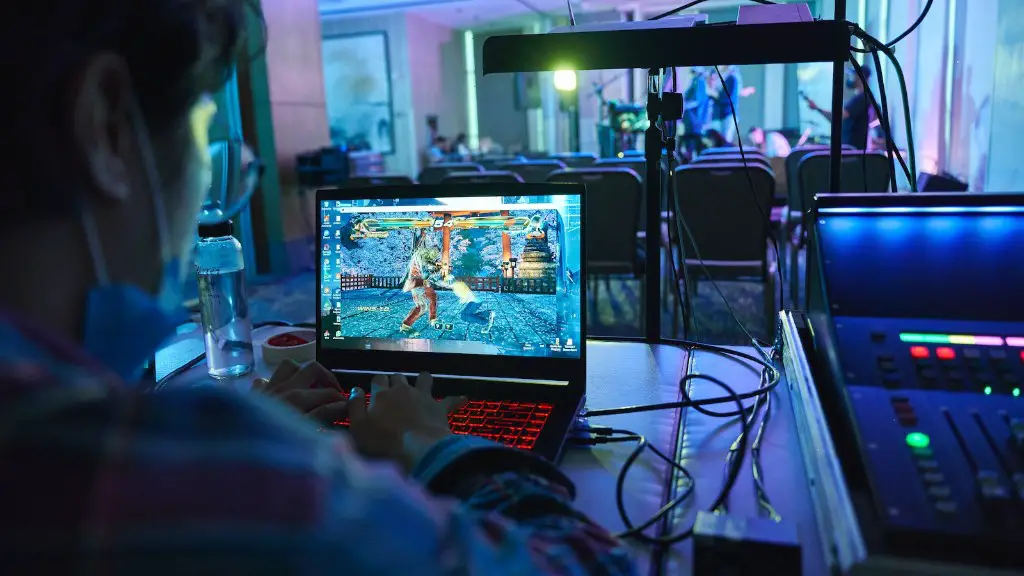Properly monitoring the temperature of a gaming PC is crucial for optimizing system performance and avoiding damage. High temperatures can cause a range of issues – from slow performance to complete system failure. Knowing how to check the temperature of key components can keep your gaming PC running smoothly and safely.
The easiest way to check the temperature of your gaming PC is to use a third-party software monitoring tool. Many such programs offer core system temperatures, fan speeds, and other specs in real time. They can also issue alerts when extreme temperatures are reached.
If you don’t want to use third party software, you can check your PC’s temperature through the BIOS. BIOS is a basic program preinstalled on any computer to monitor system hardware. To check the temperature, power up your PC and press the ‘F2’ or ‘Del’ key while the system is booting up. Then look for the ‘Monitor’ or ‘System’ options to access system temperature information.
Once logged in, simply look for the CPU and GPU temperatures – commonly denoted as the ‘Core’ temperature. Depending on the motherboard, additional temperatures for the motherboard, RAM, and other components may be available.
Should you find your gaming PC is running too hot, there are some steps you can take to reduce the temperature.Start by finding out if there is any dust blocking your fan and vents. If a single fan is not doing the job, replace it with a more powerful alternative. For more serious cases, overclocking CPUs and GPUs should be avoided and a desktop fan controller can be installed to optimize air circulation.
Finally, upgrade to better cooling solutions like liquid coolers, high quality fans, and other cooling options. Keeping your gaming PC cool is an important step to ensure your system operates at maximum efficiency.
Liquid Coolers and High Quality Fans
Liquid coolers are an efficient way of cooling computer components in gaming PCs. By transferring heat away from heat-generating components, these systems are able to allow higher clock speeds and better performance. Additionally, liquid coolers are able to work quietly and come in a variety of colors.
High-speed fans are also a great alternative for cooling gaming PCs and are often provided by computer manufacturers. Fans are usually bigger in size and can move more air than the more common quiet fans found on the market. If you’re looking for a more aggressive cooling method, fan speed can be increased to maximize cooling efficiency.
However, it’s important to be mindful of the noise pollution associated with louder fans. Depending on the fan model, the noise produced by a spinning fan can hurt ears after prolonged exposure and decreases the overall experience of gaming.
Finally, installing multiple fans may work better than having one or two larger ones, as multiple, smaller fans can generate more cooling and better circulation of air. Before investing in alternatives, conduct some benchmarking tests to get an accurate measure of temperatures, so you’re buying the right fan and setup.
Video Card Fan Speed
Graphics card fans are essential for producing or increasing heat dissipation, reducing component temperature and increasing performance. The fan speed is one of the most important settings to tweak on a PC gaming platform.
Be aware that increasing fan speed can be noisy and may affect the overall gaming experience. However, maintaining a minimum fan speed is a recommended step to improve overall cooling. A good starting point is usually between 20-50% fan speed, which will produce quiet and acceptable noise.
For PCs equipped with multiple Graphics Processor Units, it’s beneficial to consider enabling GPU fan speed synchronization. This will synchronize all the fans on the system and ramp them up depending on the load and temperature.
It’s also important to understand your system components before adjusting fan speed. Some older GPU models, while still capable of gaming, do not support fan speed adjustments due to inadequate power delivery. The same holds true for older GPU generations and low-end GPUs. Be sure to check your system components before attempting any fan speed adjustments.
Hardware Monitoring Software
If you’re looking for a real-time monitoring solution for your gaming PC, hardware monitoring software may be the best choice. These programs monitor hardware sensors, like temperatures, voltages, fan speed, and power consumption.
The primary benefit is the user-friendly interface and graphs that are usually available in the software. This makes monitoring computer components more efficient and a more enjoyable experience. Plus, alarms can be set so that when the temperature of certain components is exceeded, you are notified.
Before using a hardware monitoring program, make sure that the program is compatible with your hardware. With support for a variety of hardware on the market, the program should be able to detect all the system components easily. Many applications also offer tutorials with complete instructions on setting up the software.
In addition to monitoring temperature, hardware monitoring software can also monitor a range of other parameters such as fan speeds and power consumption. By monitoring these parameters, you can adjust fan speeds and components to reduce energy consumption and counter overheating.
Tips for Gaming PCs
To help reduce the temperature of your gaming PC and maintain optimal performance, here are a few tips:
Firstly, make sure you take regular breaks. Playing for extended periods of time can result in a greater number of processes that consume power and generate more heat. So make sure you take regular breaks while gaming to reduce heat.
Secondly, utilize a laptop cooler if your PC includes an integrated GPU. They vary in size, but all basically act as mini fans which cool your gaming laptop by compressing air and circulating it around the machine.
Thirdly, consider purchasing a cooling system or case to better manage the cooling of your gaming PC components. Some cooling systems are specifically designed for gaming and provide superior airflow and increased cooling ability.
Finally, if you overclock your gaming PC, be sure to monitor the temperatures of your PC components. Overclocking amplifies CPU performance, which can cause your machine to run particularly hot. Monitor the temperature regularly and make sure to use air cooling and other cooling solutions to help counter overheating.
